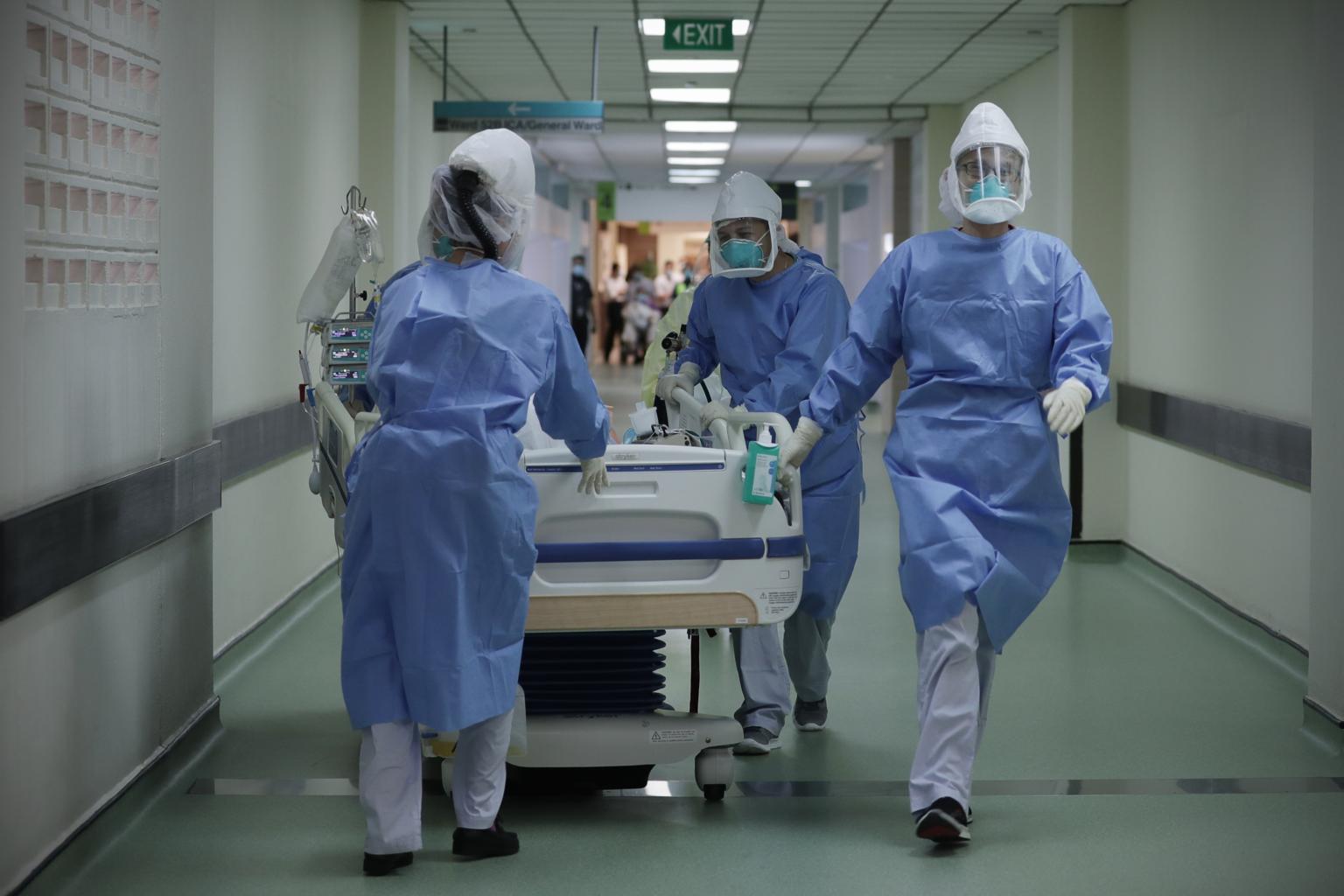Strong T-cell immune response specific to virus can prevent severe Covid-19: Study
Sign up now: Get ST's newsletters delivered to your inbox

Much is still unknown about the level of T-cells necessary to protect an individual from Covid-19.
PHOTO: ST FILE
SINGAPORE - Scientists here have found that a strong T-cell immune response specific to the Sars-CoV-2 virus, observed in some people, could prevent severe Covid-19.
The immune system depends on the T-cells, a type of white blood cell, working together with antibodies to eradicate the Sars-CoV-2 virus which causes Covid-19.
In a study conducted by the Duke-NUS Medical School and the National University of Singapore's Saw Swee Hock School of Public Health, the T-cell response was compared among 85 asymptomatic patients and 75 symptomatic patients who were infected with the Sars-CoV-2 virus around the same time.
The findings were published online in the Journal of Experimental Medicine on March 1.
The asymptomatic patients were selected from migrant workers living in dormitories, whereas the symptomatic patients were selected from Covid-19 patients who had mild to severe symptoms at the Singapore General Hospital, National University Hospital, and the National Centre for Infectious Diseases.
The team found that the frequency with which the T-cells were able to recognise different viral proteins produced by the Sars-CoV-2 virus was similar in both asymptomatic and hospitalised patients.
But those who were asymptomatic produced higher quantities of IFN gamma and IL-2, which are cytokines produced by the T-cells when an infected cell is recognised. The cytokines play an important role in inhibiting viral replication.
Dr Nina Le Bert, senior research fellow at the Duke-NUS' Emerging Infectious Diseases (EID) Programme and co-author of the study, said the findings could be key in explaining why some patients were able to recover from their infections faster and without developing any symptoms.
She added that all the recovered patients they tested had developed both antibodies and T-cells, although some had undetectable levels of antibodies but a high level of T-cells.
Much is still unknown about the level of T-cells necessary to protect an individual from Covid-19.
An earlier study, also by Duke-NUS, closely tracked the amount of Sars-CoV-2 specific T-cells in 12 Covid-19 patients throughout their illness, and found that those who had T-cell responses early on in their infection were less likely to develop severe disease.
The 12 patients in Singapore had varying disease severity. Some had mild or moderate symptoms, while others were severely ill or eventually succumbed to the disease.
The study, which was published in the scientific journal Cell Reports in January, found that those with severe disease had few functional T-cells specific to the virus, and they emerged many days after the disease onset. Those with mild disease, however, had a larger number of T-cells as early as two days after disease onset.
In a patient who eventually died from Covid-19, virus-specific T-cells were undetectable in the bloodstream.
Dr Anthony Tanoto Tan, senior research fellow at the Duke-NUS EID programme, and co-author of the study, said that the data supports the idea that Sars-Cov-2 specific T-cells play an important role in rapidly controlling viral infection, and eventually clearing the disease.
He added that monitoring the patient's level of T-cells can help doctors determine if the disease is likely to be mild or severe.
Patients with a weak or delayed T-cell response may need to be closely monitored in intensive care.
Dr Tan also noted that any good Covid-19 vaccine that is developed should be able to induce both arms of immunity - T-cells and antibodies - to confer "the most holistic protection" from the virus.


